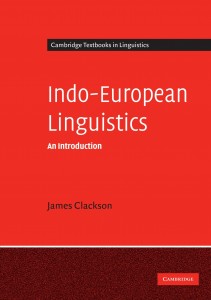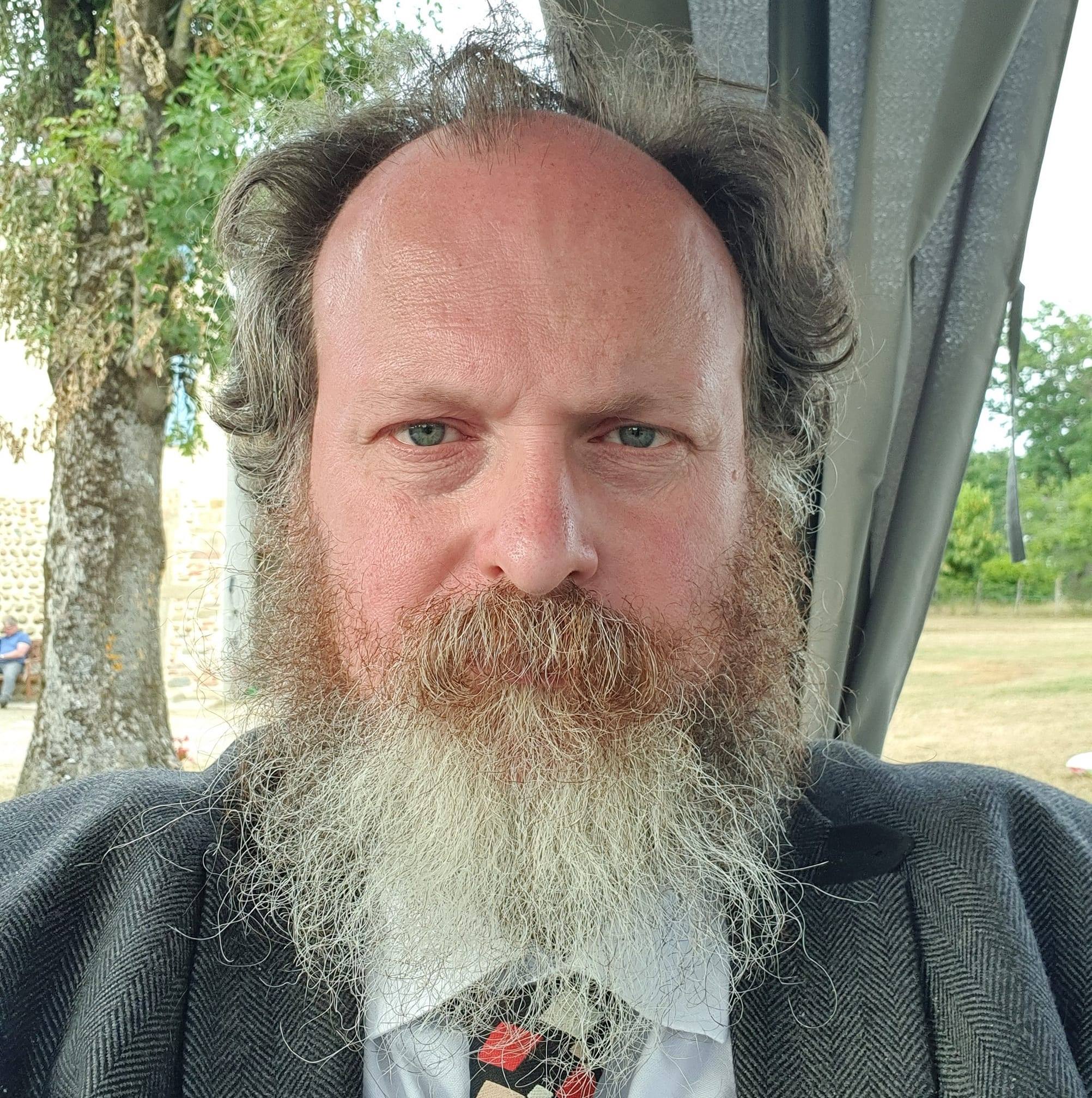 Tgo ja, hoe gaan die dingen? Ik had een boek gelezen en ik begreep het niet allemaal maar ik vond het wel zeer wijs om lezen, en dus dacht ik: ik zoek er nog eentje over het onderwerp.
Tgo ja, hoe gaan die dingen? Ik had een boek gelezen en ik begreep het niet allemaal maar ik vond het wel zeer wijs om lezen, en dus dacht ik: ik zoek er nog eentje over het onderwerp.
Het internet heeft me Indo-European Linguistics: An Introduction van James Clackson aangeraden, en het internet had daar gelijk in. Knippety-plakkety uit het voorwoord:
Do we need another introduction to Indo-European linguistics? Since 1995 four have been published in English (Beekes 1995, Szemerényi 1996, Meier-Brügger 2003, Fortson 2004) and the ground seems to be pretty well covered. This book, however, aims to be an introduction of a different sort. Whereas the works mentioned give up-to-date and (usually) reliable information on the current thinking on what is known in Indo-European studies, here the aim is to present rather areas where there currently is, or ought to be, debate and uncertainty. Whereas previous introductions have aimed for the status of handbooks, reliable guides to the terrain presented in detail, this one aspires more to the status of a toolkit, offering up sample problems and suggesting ways of solving them. The reader who wants to know the details of how labio-velar consonants developed in Indo-European languages or the basis for the reconstruction of the locative plural case ending will not find them here; instead they will be able to review in detail arguments about the categories of the Indo-European verb or the syntax of relative clauses. The result is that this book has shorter chapters on areas such as phonology, where there is now more general agreement in the field, and correspondingly longer sections on areas which are passed by more summarily in other introductions.
Yepyep. Nog meer dan bij Fortson gaan er hier dingen helemaal over mijn hoofd, maar daar staat tegenover dat er ook enorm veel wijze en boeiende en interessante dingen in staan.
Na een korte inleiding volgen een paar gebalde hoofdstukken (Phonology, Morphophonology; Nominal morphology, Verbal morphology) waar ik me meer aan het zinken dan aan het zwemmen voelde, maar de laatste twee dikke hoofdstukken (Syntax en Lexicon and lexical semantics) alleen waren de prijs van het boek waard.
En nu, verdorie, zou ik meer willen weten en er meer willen over lezen. Heb ik goesting om op zoek te gaan naar Dumézil en dingen.
Maar een mens moet weten waar zijn grenzen liggen. Ik denk niet dat het goed zou voelen. Ik zou eigenlijk dat eerste boek nog eens moeten grondig lezen en helemaal proberen begrijpen.
Even terug naar fictie, denk ik.
